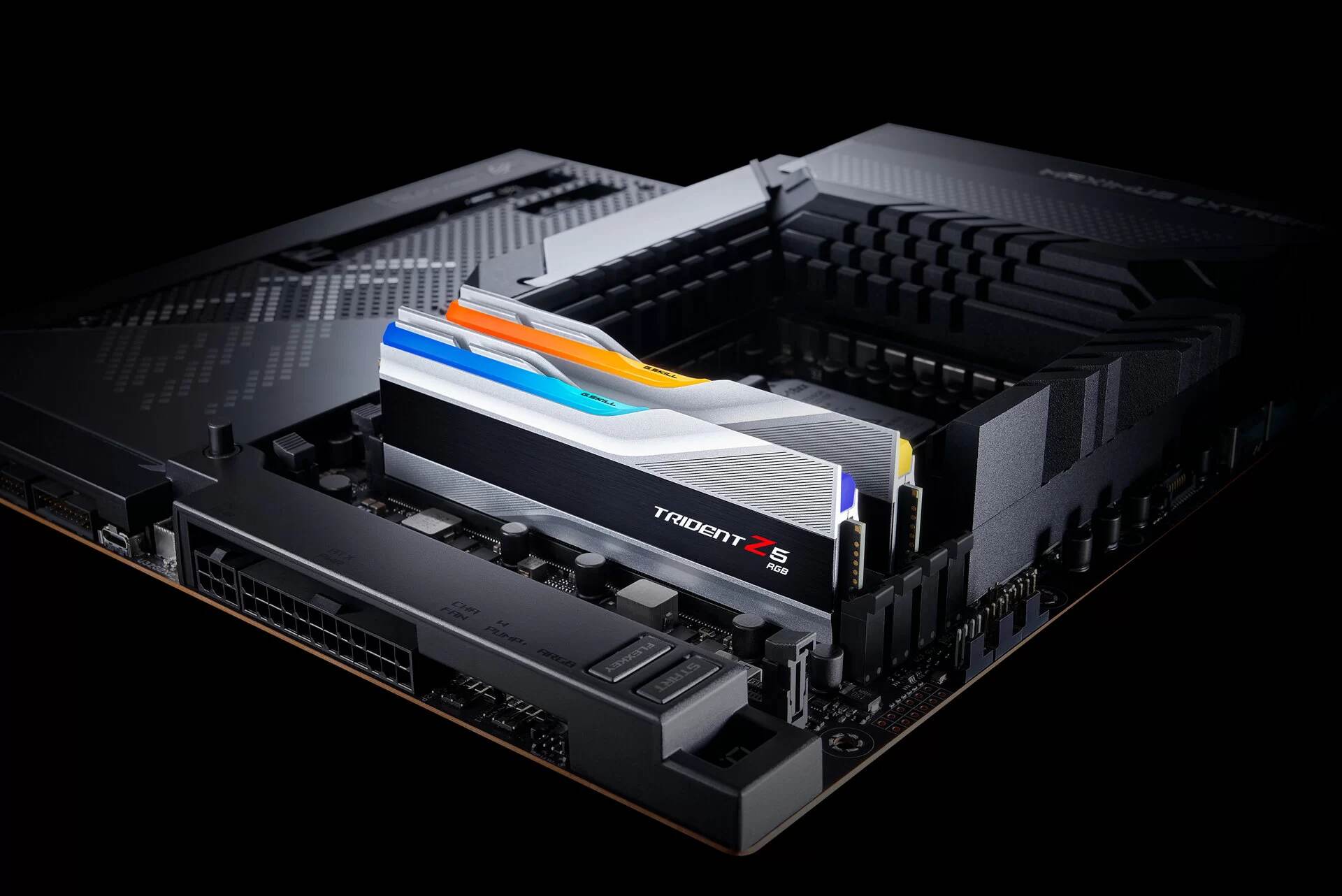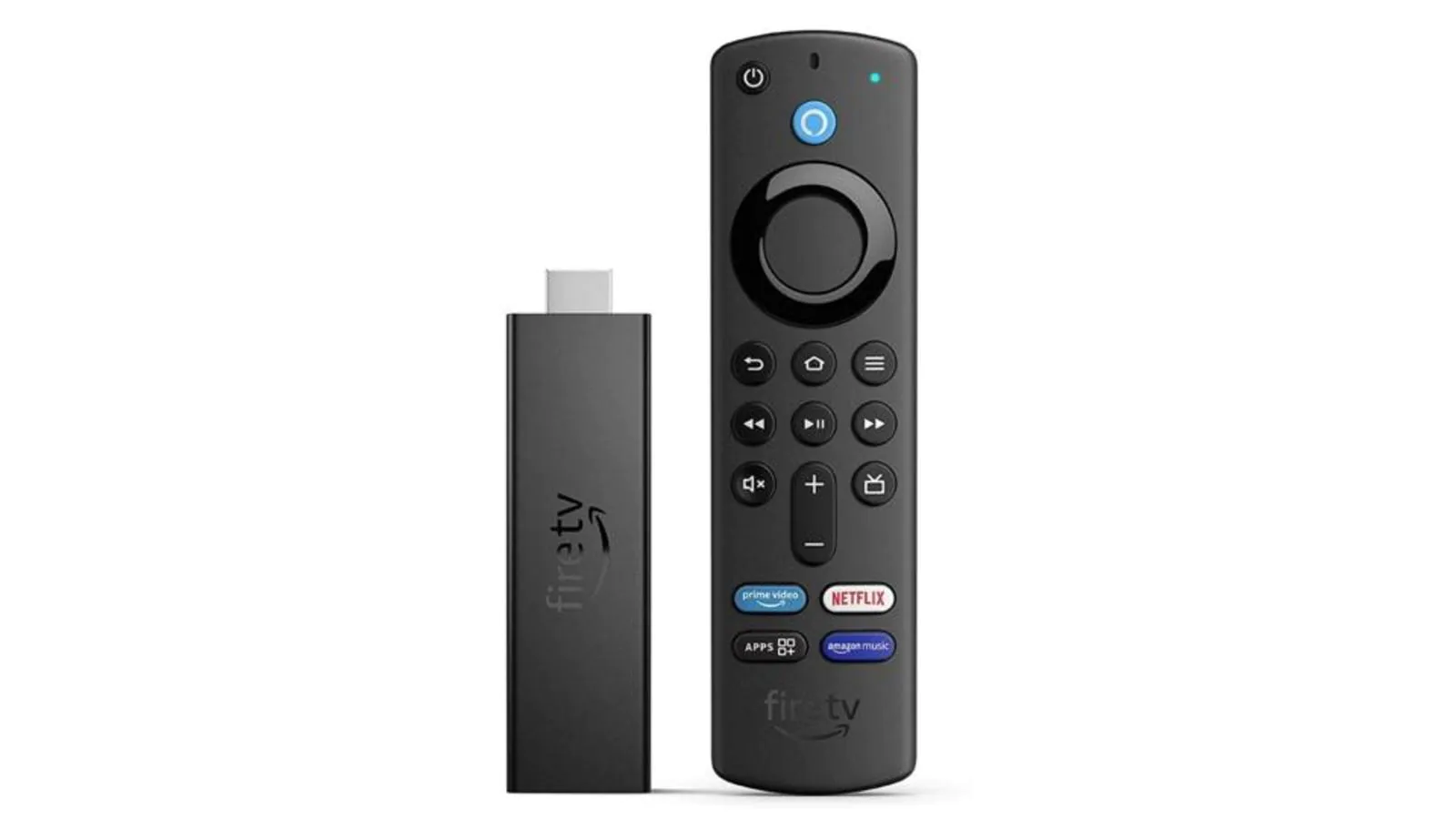Introduction
Gaming has become an integral part of our lives, providing entertainment, escape, and even competition. But have you ever wondered how the technical aspects of your computer impact your gaming experience? One crucial component that can significantly affect gaming performance is RAM, or Random Access Memory.
RAM is a type of computer memory that stores data and instructions that the computer processor needs to access quickly. In the context of gaming, RAM plays a vital role in ensuring smooth gameplay, quick loading times, and efficient multitasking. It is essentially the bridge between the processor and storage, allowing for seamless data transfer and faster access to game files.
Having sufficient RAM is essential for running games smoothly, especially as modern games become more demanding in terms of hardware requirements. As game developers continue to push the boundaries of graphics, physics, and AI, having enough RAM becomes crucial to ensure a lag-free and immersive gaming experience.
In this article, we will explore the impact of RAM on gaming performance, discuss the minimum RAM requirements for popular games, delve into how much RAM you really need for gaming, and explore ways to optimize your RAM for better gaming performance. Whether you’re a casual gamer or a dedicated enthusiast, understanding RAM’s crucial role in gaming can help you make informed decisions when it comes to upgrading your gaming rig.
So, grab your controller or keyboard, and let’s dive into the world of RAM and its effect on gaming performance!
What is RAM?
Before we delve into how RAM affects gaming performance, let’s start by understanding what RAM is. RAM, short for Random Access Memory, is a crucial component of any computer system. It serves as a temporary storage medium that the computer processor can quickly retrieve data from.
RAM can be thought of as a workspace for the computer. When you launch a game, it gets loaded into RAM along with various game assets such as textures, models, and audio files. The processor can then access this data at high speeds, allowing for smooth gameplay and faster loading times.
Unlike a computer’s permanent storage, such as a hard drive or solid-state drive, RAM is volatile, which means it requires a constant supply of power to retain the stored data. As soon as you shut down or restart your computer, the contents of RAM are wiped clean, making it a temporary memory storage.
RAM can come in different sizes and speeds, typically measured in gigabytes (GB) and megahertz (MHz) respectively. The amount of RAM your computer has directly impacts its ability to handle multitasking and process large amounts of data, including running games.
When it comes to gaming, having adequate RAM is essential. In addition to the game itself, the operating system, background processes, and other applications running on your computer also require RAM. Insufficient RAM can lead to performance issues, such as lag, stuttering, and long loading times.
In summary, RAM is a crucial component that allows the computer processor to quickly access and retrieve data. In the context of gaming, having enough RAM is essential for smooth gameplay and efficient multitasking. As we explore further, you’ll discover how RAM affects gaming performance and how you can optimize it for the best gaming experience.
How does RAM affect gaming performance?
RAM plays a significant role in determining the gaming performance of your computer. It affects various aspects of gameplay, from loading times to overall smoothness. Here are a few ways in which RAM impacts gaming performance:
- Game loading times: When you launch a game, it gets loaded into RAM. The more RAM you have, the more game data can be stored in it, resulting in faster loading times. This means you can jump into your favorite game quicker and start playing without unnecessary delays.
- Game world and assets: Modern games are becoming increasingly detailed and expansive, with larger game worlds and more complex assets. RAM allows for the smooth rendering and storage of these assets. Insufficient RAM can lead to texture pop-ins, low-quality asset streaming, and overall reduced visual fidelity.
- Game performance and stability: RAM provides the necessary resources for the game to run smoothly. It stores critical game data, such as AI behavior, physics calculations, and audio files. Inadequate RAM can result in decreased frame rates, stuttering, and overall gameplay instability.
- Multiplayer and online gaming: Online gaming often requires running multiple applications simultaneously, such as the game client, voice chat software, web browsers, and more. Sufficient RAM is essential for smooth multitasking and seamless online gaming experiences.
- Modding and customization: Many games offer modding support, allowing you to enhance or customize your gameplay experience. Mods often consume additional RAM, as they introduce new assets, scripts, and features. Having enough RAM ensures that you can use mods without performance issues.
It’s important to note that while RAM is crucial, it is just one piece of the overall gaming performance puzzle. Other factors such as the processor, graphics card, and storage speed also play significant roles. However, having enough RAM ensures that your computer has the necessary resources to handle the demands of the game, resulting in a smoother and more enjoyable gaming experience.
In the next sections, we’ll explore the minimum RAM requirements for popular games, discuss how much RAM you really need for gaming, and delve into ways to optimize your RAM for better gaming performance. So, let’s continue our journey into understanding the impact of RAM on gaming!
Minimum RAM requirements for popular games
Each game has its own system requirements, including the minimum RAM needed to run the game smoothly. Meeting or exceeding these requirements ensures that the game can utilize the necessary resources and deliver the intended gaming experience. Here are some examples of the minimum RAM requirements for popular games:
- Fortnite: The popular battle royale game Fortnite recommends a minimum of 4GB of RAM. However, to achieve optimal performance, it is advisable to have at least 8GB of RAM.
- Grand Theft Auto V: To run Grand Theft Auto V, Rockstar Games recommends a minimum of 4GB of RAM. However, 8GB or more is recommended for a smoother experience, especially when playing with high graphics settings and using mods.
- The Witcher 3: Wild Hunt: CD Projekt Red recommends a minimum of 6GB of RAM for The Witcher 3. To fully enjoy the game’s expansive world, intricate quests, and stunning visuals, having 8GB or more is highly recommended.
- Call of Duty: Warzone: Activision suggests a minimum of 8GB of RAM to play Call of Duty: Warzone. However, for optimal performance in this intense battle royale game, having 16GB or more is highly recommended.
- Assassin’s Creed Valhalla: Ubisoft recommends a minimum of 8GB of RAM to enjoy the Viking-themed Assassin’s Creed Valhalla. To experience the game at higher graphics settings and smoother performance, having 16GB or more is suggested.
These are just a few examples, and different games may have varying RAM requirements. It’s worth checking the system requirements of the specific game you’re interested in to ensure that your computer meets or exceeds the minimum RAM requirement.
It’s important to note that meeting the minimum RAM requirement does not guarantee the best gaming experience. It is always preferable to have more RAM to accommodate additional processes running in the background and allow the game to utilize more resources for improved performance.
In the next sections, we’ll discuss how much RAM you really need for gaming and explore ways to optimize your RAM for better gaming performance. So, let’s continue our exploration into the world of RAM and its impact on gaming!
How much RAM do you really need for gaming?
The amount of RAM you need for gaming depends on various factors, including the games you play, your overall computer usage, and your budget. While minimum requirements provide a baseline, having more RAM can significantly enhance your gaming experience. Here are some guidelines to help you determine how much RAM you really need for gaming:
- 8GB of RAM: 8GB of RAM is considered the minimum for gaming in most cases. It allows for smooth gameplay in many popular games, assuming you’re not running resource-intensive applications simultaneously.
- 16GB of RAM: Having 16GB of RAM provides a good balance between performance and future-proofing. It allows for smooth gaming even in more demanding titles and provides headroom for multitasking and running background processes.
- 32GB of RAM: 32GB of RAM is considered overkill for most gamers. However, it can be beneficial for content creators, streamers, and users who frequently run resource-intensive applications alongside gaming. It provides ample headroom for multitasking and ensures smooth performance even in intensive scenarios.
It’s worth noting that RAM requirements may differ depending on the specific games and applications you use. Some newer and more graphically demanding games may benefit from having more RAM. Additionally, if you tend to multitask heavily or use memory-hungry applications like video editing software or virtual machines, having more RAM can greatly enhance your overall computer performance.
When deciding on the amount of RAM you need, it’s also important to consider your budget and future-proofing. Investing in a higher amount of RAM now may provide a more seamless gaming experience and better longevity for your system, especially as games continue to grow in complexity.
Lastly, keep in mind that RAM works in conjunction with other components of your system, such as the processor and graphics card. It’s important to have a balanced configuration to ensure optimal performance. If you have a high-end gaming rig with a powerful graphics card and processor, it’s advisable to complement it with an adequate amount of RAM to fully utilize the system’s capabilities.
In the next sections, we’ll explore ways to optimize your RAM for better gaming performance and discuss the impact of RAM speed and configuration. So, let’s continue our exploration into the world of RAM and gaming!
Overclocking RAM for better gaming performance
Overclocking RAM is a technique that allows you to increase the speed and performance of your RAM beyond its default specifications. By doing so, you can potentially achieve better gaming performance. However, overclocking should be done with caution, as it can void warranties and potentially damage your RAM or other components if not done properly.
Overclocking RAM involves adjusting the settings in your computer’s BIOS to increase the speed at which your RAM operates. This can result in faster data transfer rates and reduced latency, which can lead to improved gaming performance. Here are a few considerations when it comes to overclocking RAM:
- Compatibility: Not all RAM modules are designed for overclocking. Before attempting to overclock your RAM, make sure to check if your RAM is overclocking-friendly or designed for higher speeds.
- Heat management: Overclocking can generate additional heat, which can potentially affect system stability. It’s important to ensure proper cooling for your system, including adequate airflow and potentially investing in additional cooling solutions.
- Voltage adjustments: Overclocking often requires increasing the voltage supplied to the RAM modules. This can increase the chance of instability and potentially lead to overheating. It’s crucial to carefully adjust voltages within safe limits and monitor temperatures during the overclocking process.
- Gradual testing: It’s advisable to start with conservative overclocking settings and gradually push the limits while testing for stability. Running stress tests and benchmarking tools can help identify any potential issues or instability caused by the overclocked RAM.
- Risk vs. reward: Overclocking RAM can provide performance gains, but the extent of improvement may vary depending on various factors, including the specific game and system configuration. It’s important to weigh the potential benefits against the risks and decide if overclocking is worth it for your particular needs.
It’s important to note that not all systems will achieve significant performance gains from overclocking RAM. In some cases, the impact on gaming performance may be marginal or negligible. Additionally, results may vary depending on the specific game and the overall configuration of your system.
If you’re new to overclocking or unsure about the process, it’s advisable to seek guidance from reputable resources, such as overclocking forums or communities, or consult a knowledgeable expert who can help you navigate the process safely.
Next, we’ll explore the impact of RAM speed on gaming performance and discuss the differences between dual-channel and single-channel RAM configurations. Let’s continue our journey into understanding RAM’s effect on gaming!
The impact of RAM speed on gaming performance
RAM speed, often referred to as RAM frequency, plays a role in determining the overall performance of your computer and can have an impact on gaming performance. The speed of your RAM modules affects how quickly data can be transferred and accessed, which can influence the responsiveness and smoothness of gameplay. Here’s how RAM speed can impact gaming performance:
- Load times: Higher RAM speeds can lead to faster loading times in games. When data needs to be loaded from RAM into the system, a higher speed allows for quicker retrieval, reducing the time you spend waiting for games to load.
- Frame rates: RAM speed can also impact frame rates, especially in CPU-bound scenarios. When the processor needs to transfer data between RAM and other components, a higher RAM speed can reduce the potential for bottlenecks, resulting in smoother frame rates and better overall gaming performance.
- Minimum and average frame times: The speed at which your RAM can deliver data can affect both minimum and average frame times in games. Faster RAM speeds can reduce latency and improve the responsiveness of your system, resulting in more consistent frame times and a smoother gaming experience.
- Compatibility: It’s important to consider the compatibility of your RAM speed with other components in your system. The motherboard and processor also have limitations in terms of supported RAM speeds. Ensure that your RAM modules are compatible with your system to harness the benefits of higher RAM speeds.
- Real-world impact: The impact of RAM speed on gaming performance can vary depending on the specific game, graphics settings, and overall system configuration. While higher RAM speeds can provide tangible benefits, the actual gains in gaming performance may not always be significant, especially if other components, such as the graphics card or processor, are the main performance bottlenecks.
When considering RAM speed, it’s important to find a balance between performance and cost. Higher RAM speeds generally come at a higher price point, so it’s essential to assess your gaming needs and budget. While faster RAM speeds can potentially provide benefits in certain scenarios, the performance gains may not always justify the additional cost compared to investing in other components that can have a more significant impact on gaming performance.
In the next section, we’ll explore the differences between dual-channel and single-channel RAM configurations and their impact on gaming performance. So, let’s continue our exploration into the world of RAM and its effect on gaming!
Dual-channel vs single-channel RAM for gaming
When it comes to RAM configurations, you may have heard about the terms “dual-channel” and “single-channel.” These refer to the number of memory channels used to access RAM modules in your system. Understanding the differences between these configurations can help you optimize your RAM setup for better gaming performance. Here’s a breakdown of dual-channel and single-channel RAM:
Single-channel RAM:
In a single-channel configuration, the memory controller of your processor accesses one RAM module at a time. This means that if you have a single RAM module installed, your system will be in single-channel mode. While single-channel RAM is the most basic configuration, it can still provide sufficient performance for many gaming scenarios, especially with smaller and less demanding games.
However, in more memory-intensive tasks, such as running modern games or multitasking heavily, the single-channel configuration may become a performance bottleneck. This is because the memory controller has to access data sequentially, resulting in reduced overall data transfer rates.
Dual-channel RAM:
A dual-channel configuration utilizes two identical RAM modules and allows the memory controller to access them simultaneously. This effectively doubles the data transfer rates compared to single-channel RAM. Dual-channel RAM can provide a notable performance boost, particularly in memory-intensive applications like gaming.
In gaming, dual-channel RAM can improve frame rates, reduce frame time variances, and enhance overall responsiveness. It allows for more efficient data transfer and retrieval, reducing potential bottlenecks and increasing system performance.
It’s important to note that to take advantage of dual-channel RAM, you need to use matching RAM modules in terms of capacity, frequency, and timings. Mixing different RAM module sizes or speeds may result in the system automatically reverting to single-channel mode.
While dual-channel RAM is generally recommended for gaming, especially in more demanding titles, the performance difference compared to single-channel RAM may vary depending on the specific game and system configuration. In some cases, the impact may be marginal, especially if other components, such as the graphics card or processor, are the primary bottlenecks.
Ultimately, when choosing between a dual-channel and single-channel RAM configuration, it’s advisable to consider your needs, budget, and overall system requirements. If you have the opportunity to use dual-channel RAM, it’s generally a good choice for gaming, providing improved performance and better utilization of your system’s capabilities.
Now that we’ve explored the differences between dual-channel and single-channel RAM configurations, let’s move on to discussing the benefits of upgrading your RAM for better gaming performance!
Upgrading RAM for better gaming performance
If you’re looking to enhance your gaming experience, upgrading your RAM can be an effective way to boost performance. Increasing the amount or speed of your RAM can help ensure smoother gameplay, faster loading times, and improved multitasking capabilities. Here are some key benefits of upgrading your RAM for better gaming performance:
- Improved game performance: Upgrading your RAM allows your system to handle more data and processes simultaneously. This results in smoother frame rates, reduced stuttering, and improved overall game performance, especially in memory-intensive games.
- Faster loading times: With more RAM, your system can store and quickly access game data, reducing loading times and allowing you to jump into your favorite games faster. This can significantly enhance your gaming experience, especially with large open-world games or those with extensive asset libraries.
- Better multitasking: More RAM provides additional headroom for running multiple applications simultaneously. You can have your game running smoothly while having background processes, such as voice chat applications, web browsers, or streaming software, without experiencing performance degradation.
- Future-proofing: Upgrading your RAM ensures that your system is ready for future advancements in gaming and software requirements. As games become more demanding, having ample RAM will help your system handle future updates and releases without the need for immediate further upgrades.
- Compatibility with new technologies: Some new technologies, such as ray tracing, virtual reality, or high-resolution gaming, may require more RAM to ensure optimal performance. Upgrading your RAM allows you to take full advantage of these advanced technologies without limitations.
It’s important to note that before upgrading your RAM, you should consider the compatibility with your existing system. Check the maximum RAM capacity supported by your motherboard and verify the speed and type of RAM your system can handle. Additionally, match the specifications of your new RAM modules with the existing ones, especially if you plan on adding to or replacing your current RAM configuration.
When it comes to choosing between adding more RAM or opting for faster RAM, it depends on your specific needs and budget. If your current RAM capacity is insufficient and you often find your system struggling with heavy multitasking or memory-intensive games, increasing the amount of RAM is the better option. However, if you already have sufficient RAM but desire improved performance in demanding games, upgrading to higher-speed RAM can yield noticeable improvements.
Ultimately, upgrading your RAM can provide significant benefits to your gaming performance. It allows for smoother gameplay, reduced loading times, and better multitasking capabilities. Consider your requirements, budget, and system specifications to make an informed decision when upgrading your RAM.
In the next section, we’ll conclude our exploration of the impact of RAM on gaming performance. So, let’s wrap up our journey into understanding RAM’s effect on gaming!
Conclusion
Gaming performance is not solely determined by flashy graphics cards or powerful processors. RAM, or Random Access Memory, plays a critical role in providing a smooth and immersive gaming experience. It enables quick data access, faster loading times, and efficient multitasking.
In this article, we explored the impact of RAM on gaming performance. We discussed the minimum RAM requirements for popular games, examined how much RAM you really need for gaming, and looked at the benefits of upgrading your RAM. We also delved into overclocking RAM, the impact of RAM speed, and the differences between dual-channel and single-channel RAM configurations.
It’s important to consider both the capacity and speed of your RAM when optimizing gaming performance. While having enough RAM to meet minimum requirements is essential, going beyond those requirements can provide significant benefits, including faster loading times, smoother gameplay, and the ability to handle memory-intensive tasks.
Furthermore, understanding the benefits of dual-channel RAM and considering the potential gains from overclocking can help you maximize the performance of your system.
When upgrading your RAM, make sure to consider your specific gaming needs, system compatibility, and budget. By investing in the right RAM configuration, you can enhance your gaming experience and future-proof your system to handle upcoming games and technologies.
Remember, RAM is just one piece of the gaming performance puzzle. It works in harmony with other hardware components, such as processors and graphics cards, to provide an optimal gaming experience. Ensuring a balanced and well-rounded system is the key to unlocking the full potential of your games.
So, whether you’re aiming to achieve higher frame rates, reduce loading times, or improve multitasking capabilities, paying attention to your RAM can make a noticeable difference in your gaming performance. Upgrade wisely, optimize your settings, and get ready to take your gaming to the next level!

























